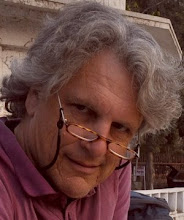
Rupert: “Eb’nFlo” is a person nearing old age, with the warm likeable qualities of a favourite Uncle “Eb” and the stateliness of “Flo” who by the way is “well-preserved”! Combining a laid back kind of way with a vital and active energy, Eb’nFlo enjoys farming, seeding, harvesting, canning and appreciates that living by the seasons has developed a keen awareness for the environment. Resilient, resourceful and confident, Eb’nFlo also has an active funny bone and loves to sing.

St. Andrew’s in Wakefield: “Andrea-Sophia” is a woman approaching middle age and in transition with an empty nest. She is wise, humble and while open to moving forward, wonders about the risk. She is reflective and seeks direction in transition. She is strong, with a big heart and has a good work ethic. Right now she is a bit overwhelmed and needs to care for herself, but has found it exciting to contemplate the rewards of bee-keeping!
A lengthy multisession process facilitated by Gisèle over the course of a couple of weeks shaped these two profiles. A number of things strike me as important:
1. The Andrew’s profile is that of a woman while Rupert is a person of undefined gender. Part of me prefers the inclusiveness of the undefined gender. Another part appreciates the reflection, caring and frankness of the female profile.
2. The two profiles are quite distinct beyond their gender. Or at least what has been written creates quite different images for me. One rather acute difference seems to be that Rupert is about what the person does while Wakefield is more about what the person thinks.
3. The does vs. thinks observation above has me wondering if a next step is planned to critique each other’s profiles. That is to question and learn from and perhaps ultimately to reshape. I am sure the process is intended to be an evolving one.
4. We are one church with two profiles ... there is some risk in continuing to feed some of the divisions which have challenged us over the years. Do we have the courage to use this process ... and these identities ... in the context of trying to resolve some of those divisions?
Seed sowing and bee keeping ... those images make me proud to be a member of the United Church of Canada at LaPêche.
